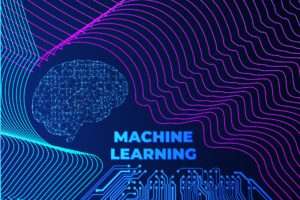MLOps
Seamless MLOps Solutions for Optimal AI Performance


Machine Learning Operations (MLOps) blends the principles of DevOps to address the challenges of ML to bridge the gap between cutting-edge machine learning models and their real-world impact. This relatively new field makes it easier for data scientists, ML engineers and IT operations teams to work together to build, deploy, and manage ML models.
QX Impact’s MLOps Services
We are passionate about delivering cutting-edge MLOps services to help businesses harness the full potential of AI and data analytics. Our dedicated team of experts is committed to providing efficient and results-driven solutions. Explore how our MLOps services can transform your AI projects.
MLOps Strategy
We work with our clients to develop a customized MLOps strategy that aligns with their business objectives. Our experts provide guidance on the best practices, tools, and technologies to use for their specific needs, laying the foundation for successful AI deployment, focusing on scalability, reliability, and cost-effectiveness.
Automated ML Workflows
We help our clients implement MLOps practices and tools to automate and simplify their machine learning workflows. Our robust data pipelines automate data collection, preparation, and integration ensuring that your AI models have access to high-quality, well-organized data.
Model Training and Optimization
Leverage the expertise of our data scientists and machine learning engineers to create and fine-tune your AI models for peak performance and accuracy. We optimize hyperparameters and model parameters to minimize the error between the model’s predictions and the ground truth labels.
Model Deployment and Scaling
Seamlessly deploy your AI models in production environments using containerization and orchestration making them accessible to users. We implement services such as automatic scaling or load balancing to ensure model availability.
Monitoring and Maintenance
With continuous monitoring and maintenance of ML models, we ensure that they continue to perform well in production. We help you manage versions of code, data, and models, ensuring complete transparency and traceability throughout your AI project.
CI/CD Automation
We implement Continuous Integration and Continuous Deployment (CI/CD) pipelines to automate the testing of ML models, deployment to production environment, and monitoring of model performance. This ensures that ML models are released to production quickly and reliably, and that they are constantly being improved with new data and insights.
Why Choose QX Impact for MLOps?


Customized Solutions


Accelerators and Connectors


Seamless Integration


Expertise and Experience
MLOps – Resources
Explore our collection of resources on MLOps designed to provide you with valuable insights and strategies.
Are you ready to take your business to the next level with AI and data analytics?
Schedule a free consultation with our team to learn more about how we can help you build and deploy reliable and scalable machine learning systems.
Subscribe
Want to Stay Informed?
Get Our Latest Updates
FAQ
Commonly Asked Questions on MLOps
MLOps, or Machine Learning Operations, is a crucial discipline that streamlines the development and deployment of machine learning models. It’s important because it bridges the gap between data science and operations, enabling the efficient and reliable deployment of AI models in real-world scenarios.
MLOps ensures that machine learning models are not just successful in a controlled environment but also robust, scalable, and continually adaptive, driving tangible business value and ensuring AI projects deliver on their promises.
DevOps, or development and operations, is a set of practices that automates the software development and deployment process. MLOps is similar to DevOps, but it is specifically designed for machine learning models. MLOps takes into account the unique challenges of machine learning, such as the need to manage and monitor models in production, and the need to retrain models as new data becomes available. MLOps combines the agility and automation of DevOps with machine learning expertise to ensure that AI models remain accurate and effective in production environments.
The key components of MLOps include:
- Data preparation: This involves collecting, cleaning, and transforming data so that it can be used to train and deploy machine learning models.
- Model training: This involves training machine learning models on historical data.
- Model evaluation: This involves evaluating the performance of machine learning models on a held-out validation dataset.
- Model deployment: This involves deploying machine learning models to production so that they can be used to make predictions on new data.
- Model monitoring: This involves monitoring the performance of deployed machine learning models and identifying any potential problems, such as biases or drift.
- Model retraining: This involves retraining machine learning models on new data to improve their performance.
MLOps offers a multitude of benefits to your business.
- It enhances operational efficiency by automating many aspects of model deployment and maintenance. This leads to reduced operational costs and faster time-to-market for AI applications.
- MLOps helps to reduce risk by helping you to identify and address potential biases or errors in your machine learning models. You can thus avoid deploying models that could make harmful or inaccurate predictions.
- MLOps helps your business to reduce costs by automating repetitive tasks, such as data preparation and model deployment. This can free up your team to focus on more strategic work, such as developing new machine learning models and improving existing models.
MLOps can improve collaboration between data scientists and IT professionals. It also helps you establish governance policies and procedures for your machine learning models and data, ensuring compliance with regulatory requirements and best practices
Some MLOps best practices include:
- Automate as much of the machine learning workflow as possible. This will free up machine learning teams to focus on more strategic work.
- Use version control for machine learning models and data. This will allow you to track changes to your models and data and to revert to previous versions if necessary.
- Monitor machine learning models in production and retrain them as needed. This will help to ensure that your models are performing well and that they are not biased.
- Establish governance policies for machine learning models. This will help to ensure that your models are used in a responsible and ethical manner.
Some of the challenges of implementing MLOps include:
- MLOps requires a combination of skills in machine learning and software engineering. This can be challenging to find in a single team, so it is often necessary to have separate teams for machine learning and software engineering.
- Machine learning workflows can be complex, involving multiple steps and tools. This can make it difficult to automate the machine learning development lifecycle.
- There are a variety of MLOps tools and technologies available, but there is no single standard. This can make it difficult to integrate MLOps tools and technologies into a cohesive workflow.
Once machine learning models are deployed to production, they need to be monitored for performance and biases. This can be a challenge, especially for complex machine learning models

